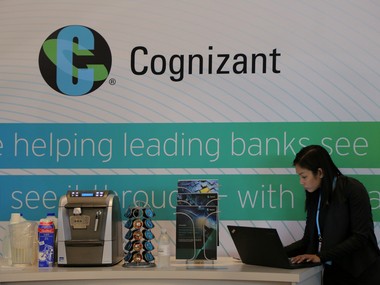The Income Tax Department (IT-D) is annoyed about India Inc’s concerted attempt to skip paying dividends and opt for share buybacks ever since the dividend mode of rewarding shareholders was rendered unattractive in 2016, through a combination of a 20 percent dividend distribution tax (DDT) payable by the company and 10 percent income-tax payable by the wealthy shareholders (read promoters) receiving dividend in excess of Rs 10 lakh. Instead, as the law stands, the buyback route of rewarding shareholders holds out a huge tax advantage for the promoters. The reason is a buyback via market purchases is completely tax free for the shareholders, be they promoters or lesser mortals, provided securities transactions tax (STT) is paid both at the time of the purchase and sale of shares. And if the buyback is consummated through the tender route i.e. by soliciting shares from the shareholders under a buyback scheme, the shareholders are liable to pay capital gains tax as the exemption from long-term capital gains tax is available only to market transactions. [caption id=“attachment_4409095” align=“alignleft” width=“380”]  Cognizant. Pic courtesy: Reuters[/caption] What is the income-tax department’s beef? Well, it seems to be agitated by companies thumbing their collective noses at the taxman by refusing to pay dividends and its concomitant DDT and, instead choosing the buyback route to reward shareholders given the tax advantages. It has been, over the past few days, questioning even the market route of buyback on the ground that in a market the buyer and seller are normally not known to each other whereas in a buyback the company already knows the buyer (the promoter) and hence it is a gimmick designed to hoodwink the income tax department. Indeed it is a gimmick. But it is for the Parliament to take cognisance of it. There is no point in being smug on tax matters when the law itself has accidentally or through design left a loophole. The income tax department has gone a step further in its overzealousness in dealing with Cognizant Technologies Ltd (CTL). It has frozen the bank accounts of Cognizant in Mumbai and Chennai over a dispute on the payment of dividend distribution tax (DDT) in excess of Rs 2,500 crore. It has raised this claim following Cognizant’s share buyback offer in 2016. A notice by the tax authorities stated: “CTS had paid only the face value of Rs 10 from the share capital and entire balance was paid from the accumulated profits which was dividend on which DDT of more than Rs 2,500 crore was not paid”. It is significant to note Cognizant has committed to return $3.4 billion to shareholders through a buyback in response to toughening of tax laws on dividend vis-a-vis buybacks. It is not for the department to question which route a company chooses to reward its shareholders. It is absurd for it to say that buybacks are nothing but a camouflaged dividend, arising as it does out of accumulated profits and hence DDT should have been paid. Of course everyone knows that a buyback is a camouflaged dividend as far as the shareholders are concerned but it remains legit so long as the law says it is legit. It is for the Parliament to swing into action and plug this tax evasion route. Let not the income tax department tilt at the windmills as it has been doing over the past few weeks by looking into all buyback schemes with a fine-tooth comb. Financial year 2018 witnessed frenetic buyback activity with 41 companies completing their share repurchase offers worth Rs 49,067 crore, the highest-ever. Of this, buyback offers by seven IT services companies accounted for Rs 44,984 crore or 92 percent. This includes the Rs 16,000-crore TCS buyback and the Rs 13,000 crore Infosys buyback. Close to Rs 34,000 crore worth of buyback offers were announced by companies last year. It is true that the sudden fascination with a buyback has everything to do with the tax laws that render upfront dividends unattractive vis-a-vis the convoluted and opaque buyback. But its moralistic objection will not be sustained by the Courts, which go by the letter of the law. Tax avoidance (picking the legally permissible alternative that entails the least outflow of tax) may revolt the sensibilities of the self-righteous but it is still a potent part of a tax payer’s armour. The only way to end tax avoidance is legislative interference. In the event, the department’s action against Cognizant Technologies including freezing of its bank accounts is bound to come a cropper. DDT payable by a company arises only when there is dividend. On buyback, the tax liability if any is that of the shareholders. Cognizant is not responsible for the tax liability of its shareholders big or small. (The author is a senior columnist and tweets @smurlidharan)
Tax avoidance is still a potent part of a tax payer’s armour. The only way to end tax avoidance is legislative interference.
Advertisement
End of Article


)

)
)
)
)
)
)
)
)



